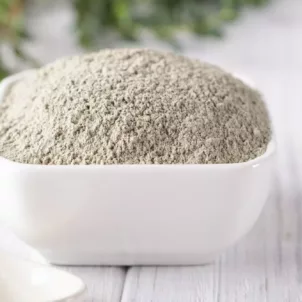The main causes of body odor might surprise you. Here, we detail what they are with tips to restore a pleasant—or at the very least, neutral—bodily scent.
Body odor happens to the best of us. However, while it’s completely natural, it can sometimes hinder your confidence and comfort level being around other people. Of course, we don’t want to get to that point. But luckily, if you smell more pungent than usual, you’ve come to the right place.
Keep reading for the lowdown on your BO, including surprising facts about sweating, the causes of body odor, and tips to stop the stench.



Sources of Body Odor
First things first: Did you know that sweat itself is actually odorless? That said, bacterial growth is the main culprit at play when it comes to strong smells. According to a 2020 review of bacteria-based body odor, the primary sources of such smells come from small volatile organic compounds (VOCs) that are either:- produced in the skin + mouth
- carried from the gut to the bloodstream
- breath
- saliva
- waste
- penile + vaginal fluids

Types of Sweat Glands
Next, before we get to the root causes of body odor, it’s worth noting that there are two types of sweat glands.Eccrine Glands
First, eccrine sweat is typically clear. It consists of up to 99 percent water, yet also contains:- sodium chloride
- urea
- fatty, lactic + other acids
Apocrine Glands
Second, apocrine glands produce sweat that’s less acidic. On top of its water content, apocrine sweat contains:- lipids
- proteins
- carbohydrates
- steroids

3 Causes of Body Odor
Now that we know about how body odor manifests, let’s dive into the actual causes of body odor.1. Certain Foods
As the saying goes, you are what you eat—and sometimes, when you eat smelly foods, your body odor will reflect that. So what foods cause body odor? Some of the main culprits include:- onions
- garlic
- cumin
- curry powder (fenugreek, coriander + cumin)
- cabbage
- broccoli
- cauliflower
- Brussels sprouts
2. Poor Gut Function
As we saw above, body odor is linked to gut health. If your gut isn’t functioning optimally, you may notice a surge in bad smells. Irregular intestinal transit time, a leaky gut, and other manifestations of compromised gut barrier function may “increase the penetration of bacterial metabolites to the circulation.” Tip: Trying to simultaneously stop the stink and restore your gut health and digestion? The following measures can help:- eating a well-balanced, anti-inflammatory diet
- avoiding processed foods
- keeping a food journal and/or following an elimination diet to pinpoint sensitivities
- taking a high-quality probiotic and/or digestive enzymes
3. Stress
There’s a good chance you already know that stress can cause body odor. After all, sweating (and accompanying bacterial growth) is a common side effect of being nervous or worried. According to a 2013 review, psychological stimuli regulate apocrine sweating. Specifically in the axilla (aka armpits), “psychological sweating leads to increased sweat output and malodour formation.” Tip: Sure, reducing stress is easier said than done. Thankfully, however, there are many natural ways to combat stress. Some worthy ideas include:- getting enough sleep
- avoiding burnout at work
- practicing stress-reducing rituals such as yoga, meditation, or breathwork
- taking adaptogen supplements such as ashwagandha gummies or rhodiola rosea

Final Thoughts
As we learned, specific foods, gut health, and stress can all cause body odor. At the same time, it’s important to follow standard hygienic practices. These include but aren’t limited to:- showering soon after working out or sweating excessively
- wearing clean clothes + breathable fabrics
- applying deodorant regularly
More like this









